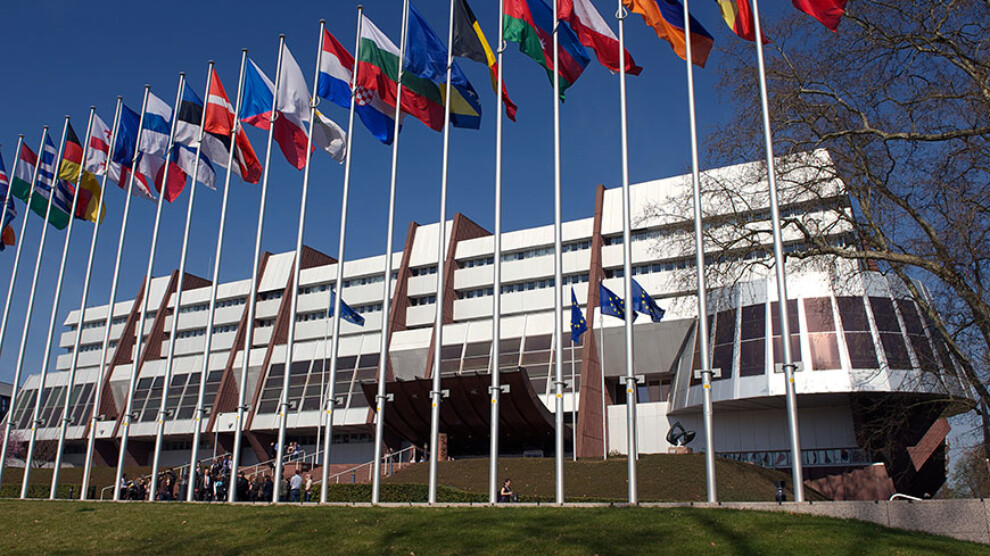Lawyer Demir: Council of Europe tolerates Turkey
Lawyer Ramazan Demir said that Turkey did not comply with the latest ECtHR ruling concerning the HDP deputies by taking advantage of the Council of Europe’s tolerance.
Lawyer Ramazan Demir said that Turkey did not comply with the latest ECtHR ruling concerning the HDP deputies by taking advantage of the Council of Europe’s tolerance.

Lawyer Ramazan Demir stated that the latest decision of the ECHR concerning the HDP deputies exposed and frustrated the Turkish government’s conspiracy against the HDP lawmakers carried out on 4 November 2016.
The European Court of Human Rights (ECHR) has released its decision over the application concerning former Peoples' Democratic Party (HDP) Co-Chair Figen Yüksekdağ and 13 deputies. The court ruled that the arrest of Yüksekdağ and the other deputies on 4 November 2016 violated their freedom of expression and the right to elect and be elected.
As in its ruling over the case of Selahattin Demirtaş, the court ruled that these arrests were also politically motivated, which violated Article 18 of the ECHR. The court also asked Turkey to pay 184,600 euros in compensation. The ECHR ruling concerned the following politicians: Figen Yüksekdağ, İdris Baluken, Besime Konca, Abdullah Zeydan, Nihat Akdoğan, Selma Irmak, Ferhat Encü, Gülser Yıldırım, Nursel Aydoğan, Çağlar Demirel, Burcu Çelik, Leyla Birlik and Ayhan Bilgen who left the HDP after his arrest.
Ramazan Demir, one of the lawyers in the case, told ANF that ECHR rulings are binding for Turkey. “According to Article 90 of the Constitution, Turkey already approved in 1988-89 that it would comply with the decisions of the European Convention on Human Rights and the European Court of Human Rights. There is no discussion about it.”
Lawyer Demir stated that it is very important that the ECtHR decision cited the political motivation behind the arrests. “This is a decision that both reveals and frustrates the 4 November 2016 operation. The ECHR had already revealed its principles when it ruled over Selahattin Demirtaş’s case. It has now defended the same principles in its recent ruling concerning the HDP deputies.”
RULING IS BINDING BUT TURKEY DOES NOT IMPLEMENT
Demir reminded that Turkey has not implemented three ECHR decisions due to political reasons: “There are three decisions that Turkey has not implemented so far. One relates to the Xenides-Arestis decision concerning the Greek Cypriots. Others concern Selahattin Demirtaş and Osman Kavala. All three cases are political cases. Turkey takes advantage of the toleration of the Council of Europe to keep these people in prison. More precisely, it somehow takes advantage of the slow functioning of the Council. However, Turkey will eventually implement those decisions. If there is a violation ruling, state authorities are supposed to ensure the conditions before the violation. Turkey must do it in accordance with article 46 of the ECHR. There is no discussion about whether it is binding or not. The main debate revolves around whether Turkey would implement it or not. Turkey claims that it has already implemented the decisions concerning Demirtaş or Kavala and released them after the first files against them. As in the Demirtaş decision, the ECHR said that that wasn’t the case as Turkey arrested them a second time with the same evidence.
COUNCIL OF EUROPE TOLERATES TURKEY
Demir pointed out that Turkey keeps repeating the same arguments and the Council of Europe tolerates that. “The government keeps saying the same thing. Turkey may lose both its status and rights within the Council. The ECHR is a judicial body of the Council. Turkey says that it does not want to comply with its decisions. If this is the case, then Turkey has no place within the Council. But unfortunately, the Council of Europe is very weak in this regard. The Council should show its strength, because it's a political structure after all.”